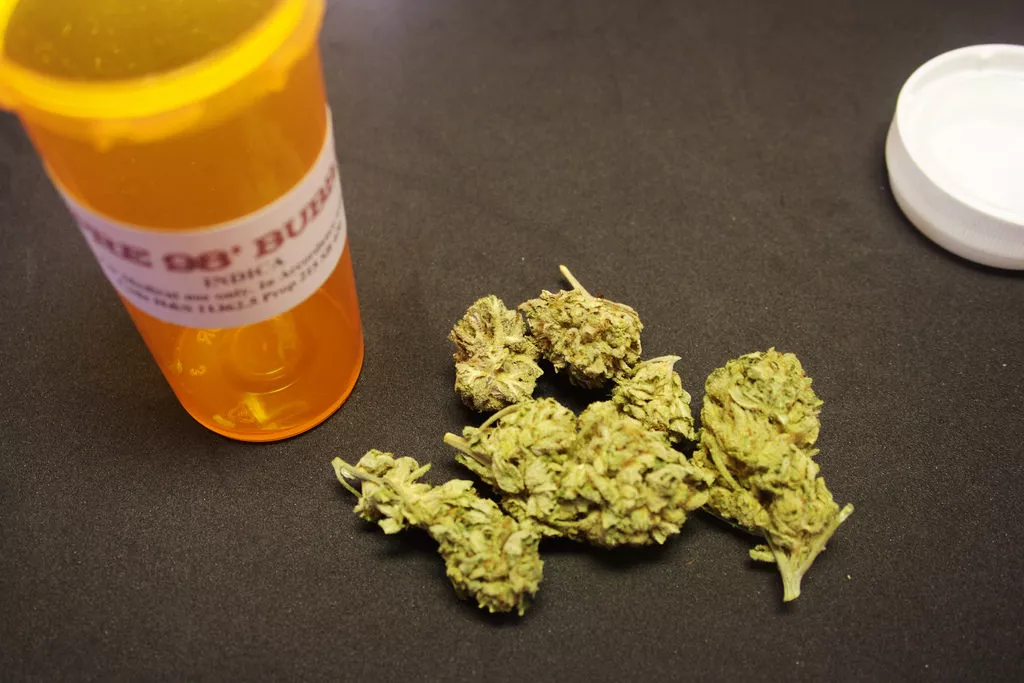The Hebrew Home at Riverdale has a reputation for being a progressive skilled nursing facility, thanks to its stance and policies regarding sexual expression. Now, it’s taking a lead role on another controversial topic: medical marijuana.
A non-profit organization, the Hebrew Home is part of the RiverSpring Health campus, which includes a variety of senior care services and housing options and is located in the Bronx, in New York City. New York is one of 29 states where cannabis is legal to treat specific medical diagnoses.
In the Empire State, those diagnoses include chronic pain, Parkinson’s disease, cancer and other conditions commonly seen in skilled nursing settings. This is one reason why the Hebrew Home began its medical cannabis program about a year ago, Dr. Zachary Palace, the SNF’s medical director, said at the LeadingAge annual conference in New Orleans this week.
His review of the medical literature convinced him that cannabis could bring benefits to Hebrew Home residents, but making the drug available was no simple matter from an operational perspective.
Many complications are due to the fact that medical cannabis is legal on the state level, while it is still considered a Schedule 1 banned substance by the federal government.
So, the Hebrew Home could be at risk of federal prosecution and its Medicare and Medicaid dollars could be in jeopardy, if it is not scrupulous in how it approaches medical cannabis. It was about a four-month process to determine the proper guidelines, policies and procedures, Palace told Skilled Nursing News.
Physicians and nurse practitioners are allowed to prescribe medical cannabis in New York, and assessment of interested residents is a crucial first step to ensure that they have a qualifying diagnosis and that the drug makes sense given their overall condition, Palace said. However, he added, there are generally few side effects and many benefits.
These are a few of the other practices that the Hebrew Home has adopted:
– Residents who take medical cannabis keep it in a lockbox in their room, and only they have the key. The cannabis is not something that the Hebrew Home itself owns, nor is it part of the electronic medication administration record.
– The medical cannabis is self-administered by the residents or by a caregiver they have established a trusting relationship with, not by Hebrew Home staff as part of routine medication administration and management procedures.
– Residents pay for the medical cannabis out of pocket and in cash, with a monthly supply costing about $200.
Even with these practices in place, complex legal issues must be navigated on a case-by-case basis.
For example, one resident has a family member who is willing to travel to the Hebrew Home every day to help with the medical cannabis administration, but there is a problem: that family member lives across the river in New Jersey, and only New York residents can administer the drug, Palace explained.
Residents themselves were not clamoring for medical cannabis at the outset, he said. Many had a negative perception of marijuana, but after the Hebrew Home organized some education sessions, some people did opt to try the medical version.
Now that these early adopters have been enjoying benefits of the drug, it is creating a “buzz” around the community, Palace said—pun intended.
And the Hebrew Home itself hopes to stir the pot. It wants to show how medical marijuana can be integrated into a skilled nursing setting in a more purposeful way than the “don’t ask, don’t tell” approach that is all too common in states where medical marijuana is legal, Palace said.
“I’ve spoken with colleagues across the country,” Palace said. “Most people don’t know about [medical cannabis], and the others know about it but don’t want to touch it, and that’s a shame, because there’s so much patients can benefit from.”
Written by Tim Mullaney



